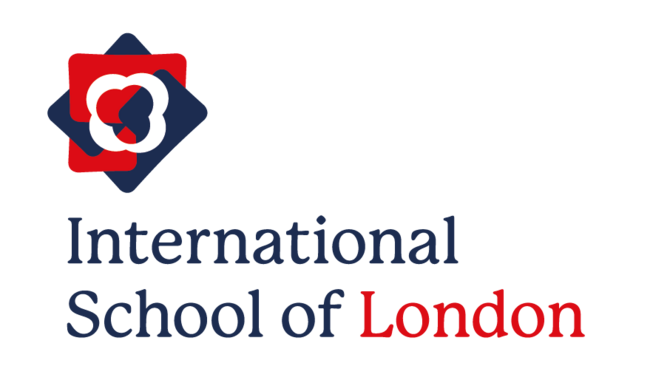Early years at International School of London
International School of London explores the importance of Early Years education.

Early Years Foundation Stage (EYFS)
At ISL our Early Years programme follows the Early Years Foundation Stage (EYFS) framework, which is highly regarded for its holistic approach to child development. We also integrate the philosophy of the International Baccalaureate Primary Years programme with the EYFS. Our curriculum emphasises the importance of play-based learning, which aligns perfectly with our commitment to fostering a love of learning in a natural and engaging environment. By incorporating our Forest School sessions in Gunnersbury Park, we take learning outdoors, allowing children to explore and connect with nature. This not only enhances their physical development but also promotes creativity, problem-solving and resilience. The EYFS framework ensures that all aspects of a child's development are addressed, including communication, physical skills, personal, social and emotional development, and understanding the world.What parents should look for in an Early Years setting
Parents should seek an Early Years setting that offers a safe, nurturing and stimulating environment. Key aspects to consider include:1. Safety and cleanliness:Qualified and caring staff: look for experienced educators who are trained in early childhood development and demonstrate warmth, patience, and a genuine interest in the wellbeing of each child.Health and safety Policies: Look for a setting where good safeguarding practices are in place. Check if the setting adheres to strict health and safety regulations, such as hygiene practices and accident procedures. 2. Environment and facilitiesHappy and engaged students: look for students who are busy, happy and engaged in their environment. A setting where students show independence but also feel confident to ask staff for help when needed.Outdoor space: Access to a safe, outdoor play area is important for physical activity and fresh air.Child-centred learning environment: look for a bright, welcoming environment that’s designed for children with age-appropriate toys, furniture and play areas The programme should offer a safe, engaging and inclusive environment that encourages exploration and play, catering to the diverse needs and interests of young children.3. Curriculum and activitiesBalanced curriculum: ensure the curriculum integrates both structured and unstructured activities, promoting holistic development through a mix of academic learning, creative expression, physical activity and social interaction.4. Socialisation and emotional supportEmphasis on social and emotional development: look for a programme that prioritises the development of social skills, emotional intelligence and resilience, helping children build a strong foundation for future relationships and learning.5. Meals and nutritionHealthy meals and snacks: ensure the nursery provides nutritious meals and snacks that meet dietary guidelines for children.Special dietary needs: check how they handle food allergies or specific dietary requirements (e.g., vegetarian, gluten-free).6. Parental Involvement: a strong programme fosters open communication with parents and actively involves them in their child's learning journey, recognising the importance of a partnership between home and school.Red flags include a lack of clear curriculum, poor staff interaction with children, non-engaging facilities and limited outdoor space or activities. Additionally, a setting that does not prioritise safety, cleanliness or regular communication with parents should be approached with caution.
How important is the physical space for children of this age?
The physical space is critical for young children as it directly influences their learning experiences and overall wellbeing. Our early years environment is designed to be warm, welcoming and conducive to exploration for indoor and outdoor play. We have well-organised indoor spaces that encourage independent learning, creativity, and social interaction.We have a well-planned outside area which allows our students access to all areas of the EYFS. We provide a range of exciting activities that are linked to our inside learning thus ensuring that further learning and connections take place. Students have opportunities to observe plants growing, investigate how water flows as well as count natural objects like leaves or stones. We have a mud kitchen which encourages open-ended, sensory-rich and imaginative play, making it a valuable addition to our EC setting.Outdoor learning is a cornerstone of our approach, and our Forest School sessions at Gunnersbury Park are a testament to this commitment. At ISL, we also engage in outdoor learning with many of our lessons. The natural environment provides children with opportunities to engage in physical activity, develop motor skills and foster a deep connection with nature. Our outdoor spaces are not just playgrounds but extensions of the classroom where children can explore, experiment and learn in a hands-on, immersive way. This approach ensures that children develop a well-rounded sense of the world around them while enjoying the physical and mental benefits of being outdoors.Visit the International School of London (ISL) Featured School page

Find out more about the Think Global People and Think Women community and events.


Subscribe to Relocate Extra, our monthly newsletter, to get all the latest international assignments and global mobility news.Relocate’s new Global Mobility Toolkit provides free information, practical advice and support for HR, global mobility managers and global teams operating overseas.
©2025 Re:locate magazine, published by Profile Locations, Spray Hill, Hastings Road, Lamberhurst, Kent TN3 8JB. All rights reserved. This publication (or any part thereof) may not be reproduced in any form without the prior written permission of Profile Locations. Profile Locations accepts no liability for the accuracy of the contents or any opinions expressed herein.




































